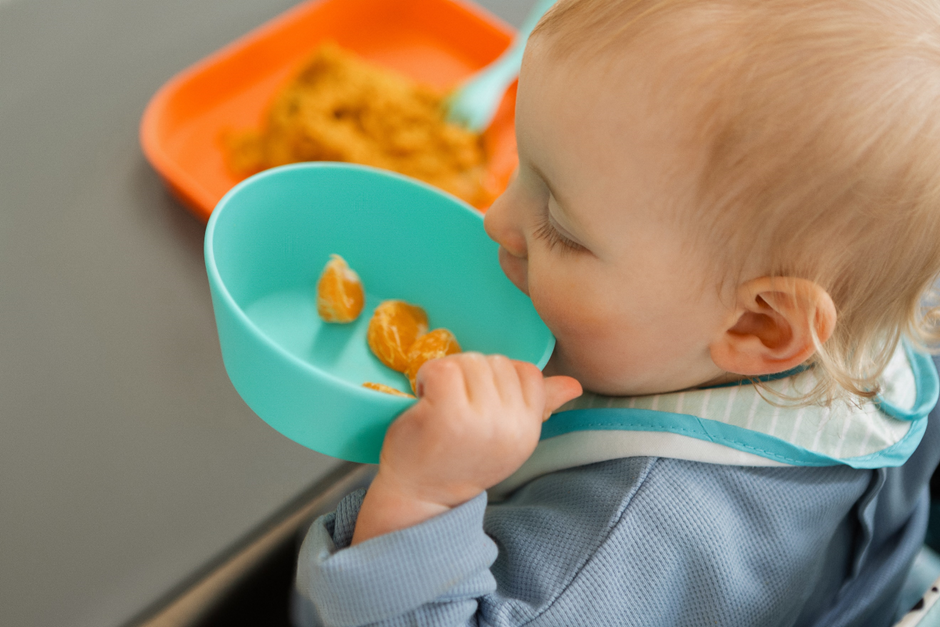We surveyed 1,000 parents with children aged 0-3, which has revealed that the cost of fresh, healthy ingredients is the biggest financial challenge they face when feeding their children. Almost two-fifths (37%) of parents say this issue is their top concern. In contrast, only 17% of parents surveyed stated that finances were not a concern when feeding their children.
The survey was conducted as part of our Good Square Meal initiative in collaboration with FareShare, the UK’s largest charity focused on combating hunger and food waste. We’re on target to fund the equivalent of 250,000 meals for children in the first year of the partnership, addressing the growing challenges faced by families in accessing affordable and healthy food.
The findings also revealed a wider landscape of financial strain for parents. After the cost of healthy ingredients, the next most significant concern was the cost of providing multiple meals a day for children, highlighted by more than a quarter (27%) of parents surveyed. The cost of baby- or toddler-specific foods ranked third, cited by almost one in five (18%) respondents.
The survey also highlighted that more than half of the parents surveyed (57%) consider it very important to prepare meals that can be shared by both their baby or toddler and the rest of the family. Another 38% said this is somewhat important, while just 5% considered it not important. The top two reasons for parents seeking family-friendly meals were saving money on groceries and ensuring the entire family consumes balanced, healthy meals. Additionally, they want to save time on meal preparation and make mealtime simple and less stressful.
When asked about using free resources, such as low cost recipes or guides on nutritious ingredients for babies and toddlers, more than half (53%) of respondents said they currently use these resources. Meanwhile, 40% expressed interest in using them, but do not currently do so. Only 7% stated that they do not see the need for such resources.
Feeding your family on a budget: 10 expert tips for baby and toddler parents

1. Sign up for the NHS Healthy Start Scheme
The NHS Healthy Start scheme provides eligible parents with financial support for buying milk, infant formula, fruit and vegetables. Check the eligibility criteria to see if you qualify to receive:
- £4.25 each week of your pregnancy from the 10th week.
- £8.50 each week for children from birth to 1 year old.
- £4.25 each week for children aged 1 to 4 years old.
2. Buy frozen fruit and vegetables
Switching to frozen fruits and vegetables is a great way to save money and reduce waste compared to buying fresh. Nuby’s research found fresh strawberries cost an average of £0.84 per 100g, while frozen strawberries are only £0.66 per 100g. Similarly, fresh green beans cost £0.48 per 100g, while frozen green beans are just £0.13 per 100g*. The cost savings and longer shelf life make frozen produce a budget friendly choice that helps cut down on food waste.
3. Make one meal for the whole family
Cooking separate meals for your young child and the rest of the family can quickly become expensive and time consuming. In fact, 57% of parents surveyed said it’s very important to prepare meals that the whole family can share, with an additional 38% agreeing it’s somewhat important. The main reasons for this are to ensure everyone eats healthy, balanced meals and to save money on groceries.
4. Check price comparison sites before shopping
If your child has favourite snacks or baby foods you buy regularly, check price comparison sites before heading to the shops. You might find better deals at another supermarket, helping you save without compromising on your baby’s favourites.
5. Bulk make your own baby purees
When your baby starts weaning, they’ll eat a lot of purees. While shop bought options are convenient, making your own in bulk is cheaper. Buy fruits and vegetables in larger quantities, puree them and freeze in portion sized ice cube trays. This way, you can easily defrost just what you need for each meal.
6. Batch cook and freeze leftovers
Batch cooking isn’t just for purees, it works for family meals too. Cooking larger portions allows you to save money by buying ingredients in bulk, save energy by using the oven less often and have leftovers ready to reheat for future meals.
7. Join baby clubs for discounts
Many supermarkets have baby clubs that offer exclusive discounts and perks for members. Signing up is a simple way to save money when shopping for your baby’s essentials.
8. Take advantage of supermarket special offers
Supermarkets often have multi buy deals, discounts or special offers on baby essentials like formula, snacks and baby food jars. Keeping an eye out for these offers can help you save money on regular purchases. Stocking up when there’s a good deal can make a big difference in the long run.
9. Use free online weaning recipes
Skip the cookbooks and find free online weaning recipes instead. For example, Nuby has teamed up with food influencers My.Little.Food.Critic and At Dad’s Table to create over 20 free weaning recipes. From hidden veg sausage rolls to chicken balti curry, you’ll find plenty of delicious options on our website.
10. Make a meal plan and stick to it
Before shopping, create a meal plan for the week and stick to it. It’s easy to get tempted by buy one get one free offers but only buy them if it’s already on your list to make the saving. A clear plan will keep your spending under control and help reduce food waste.
To find out more about our Good Square Meal campaign with FareShare head over to this page on our website to find out more. Our Good Square Meal range includes weaning plates, baby bowls, baby weaning cutlery and more.
*Costs calculated using an average of prices from three of the UK’s largest supermarkets.
